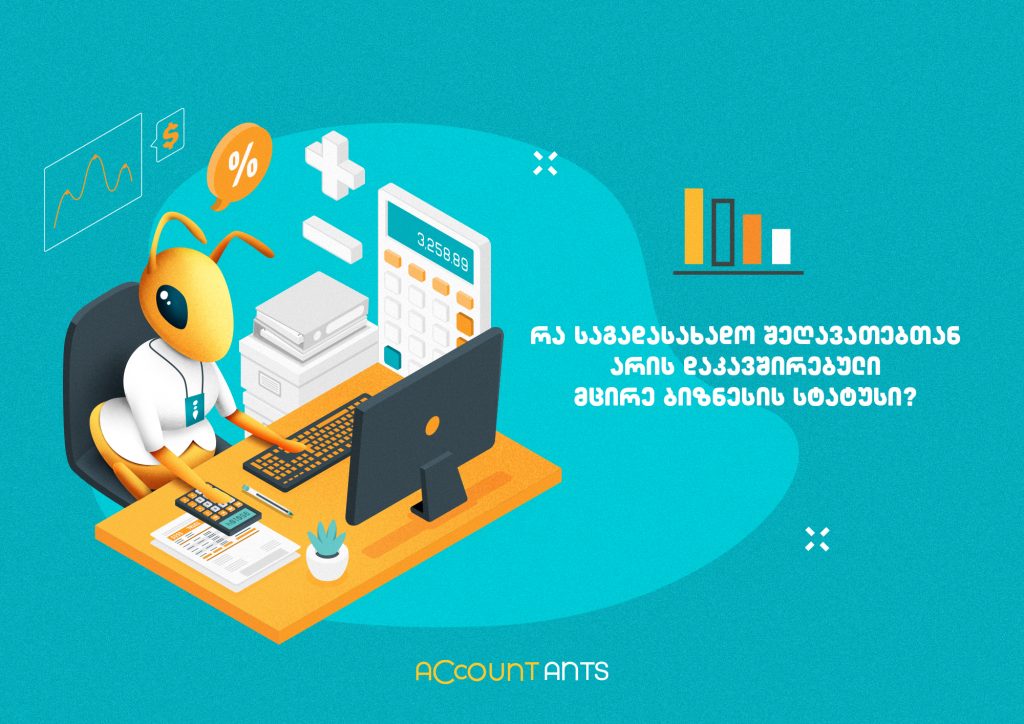Small Business status is associated with significant tax benefits in Georgia. Therefore, investors are often interested in the subject. In this article, we will be discussing exactly what are the tax benefits, who can obtain the status, in which cases does an investor lose the status and what are the pros and cons of the status compared to an LLC.
What are the exact tax benefits of the Small Business status?
Small Business status entitles an individual to only 1% personal income tax (PIT) instead of standard 20%. Besides, participation in state pension scheme is voluntary. The pension scheme is only applicable to Georgian residents. Therefore, we will continue our discussion excluding the pension scheme effect.
Let’s compare taxation of Small Business status holder to taxation of an ordinary employee. For example, if a company pays net 1,000 GEL to an employee, this means that its total salary expense, including the PIT, equals 1,250 GEL (1,000/0.8). Now let’s see what happens if the company pays the budget allotted for the employee compensation to a Small Business status owner instead. In this case, the individual (the status owner) will pay only 12.5 GEL (1,250*1%) in taxes and will receive net payment of 1,237.5 GEL (1,250*99%). Simply put, the status owner receives 237.5 GEL more (1,237.5 – 1,000) due to PIT tax saving compared to an ordinary employee.
Who can obtain the Small Business status?
Often investors assume that registering as an Individual Entrepreneur is enough to receive the tax benefits in Georgia, however Individual Entrepreneur should also obtain Small Business status from the Revenue Service of Georgia.
Our company offers all necessary accounting services associated obtaining the status.
Individual Entrepreneur can obtain the status in case his/her business activities are not one of the, so called, “prohibited activities”, meaning activities in case of which Small Business status is not available. Such activities include medical, architecture, legal, notary, consulting, audit etc. The full list is available on the webpage of Legislative Herald of Georgia.
As an additional requirement, to obtain Small Business status, an individual’s revenue should not exceed 500,000 GEL. If such revenue exceeds 500,000 GEL for two consecutive years, individual will lose the status. If in some years, but not in consecutive years, individual’s revenue exceeds 500,000 GEL, then he/she must pay 3% income tax instead of 1%. Individual will be taxed by 3% starting from the month of exceeding the limit, up to the end of the calendar year.
In which cases does an individual lose Small Business status?
As discussed above, the status is lost if an individual’s revenue exceeds 500,000 GEL for each of two consecutive years.
Besides, the status is lost if an individual was penalized for violation of rules of use of cash terminal or if he/she conducted the called “prohibited activities” discussed above.
What are the pros and cons of Small Business status?
Apart from significant advantages associated with tax reliefs discussed above, Small Business status has some disadvantages compared to an LLC (Limited Liability Company). Small Business status owner is personally responsible for business liabilities. For example, if a business owes 200,000 GEL to suppliers (or banks) and is unable to pay, the creditors are entitled to request payment directly from the individual’s private property. In case of LLC, on the other hand, creditors can only request payment from the company’s assets and not from the private property of the business owner.
 en
en


